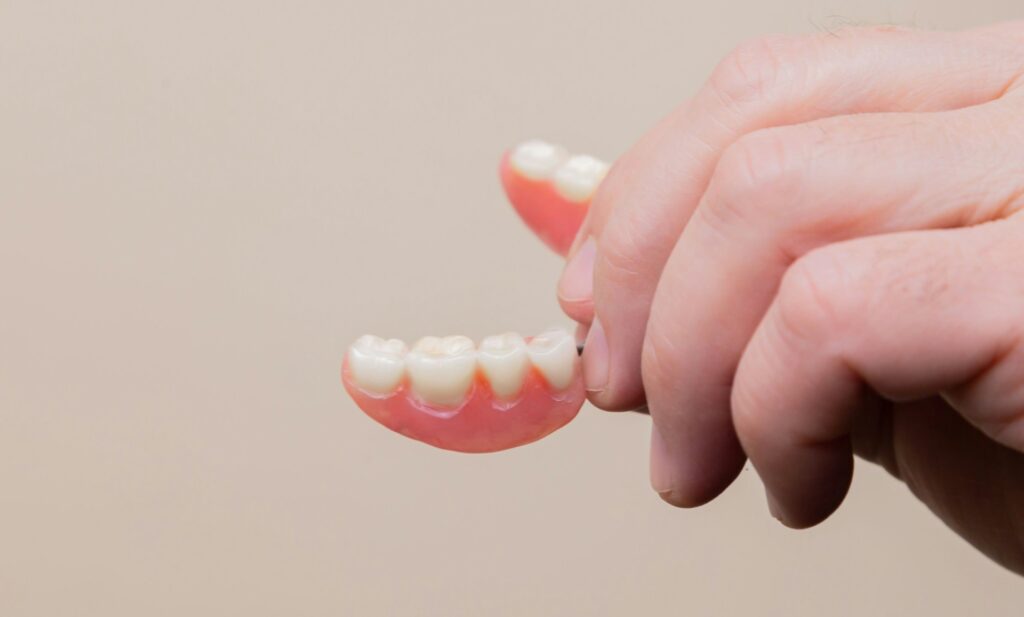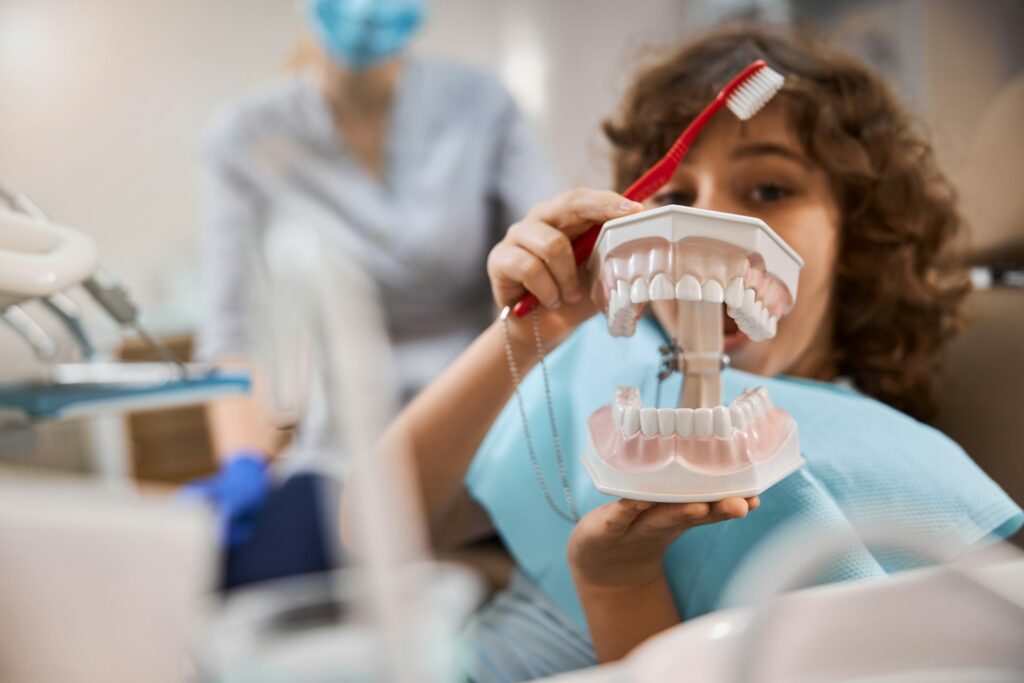Dentures, often referred to as false teeth, are a common solution for those who have lost their natural teeth due to age, disease, or injury. While they restore functionality and aesthetics, they also come with their own set of maintenance requirements.
One of the most frequently asked questions is, of course, ‘Do I have to clean my false teeth?’ The short answer is yes, but let’s delve deeper into the why and the how, along with addressing other common queries about dentures while you’ve got our undivided attention.
Why Cleaning Your Dentures Is Essential
Just like natural teeth, dentures can accumulate plaque, tartar, and food particles. If not cleaned properly, this can lead to several issues:
- Oral Hygiene: Dirty dentures can harbour bacteria, leading to bad breath and potential infections in the mouth.
- Gum Health: Plaque build-up can irritate the gums, causing soreness and inflammation.
- Longevity of Dentures: Regular cleaning helps maintain the integrity and appearance of your dentures, ensuring they last longer.
- Overall Health: Poor oral hygiene can have broader health implications, including an increased risk of respiratory infections and other systemic conditions.

How To Clean Your Dentures
Cleaning your dentures is a straightforward process, but it requires consistency and the right techniques:
- Daily Cleaning: Just like natural teeth, dentures should be cleaned daily. Use a soft-bristled brush and a non-abrasive denture cleanser. Avoid regular toothpaste as it can be too harsh.
- Rinsing: After eating, remove and rinse your dentures to eliminate food particles and prevent staining.
- Soaking: Soak your dentures overnight in a denture-cleaning solution. This helps to disinfect them and remove any stubborn deposits.
- Handling with Care: When cleaning, handle your dentures over a soft surface or a sink filled with water to prevent damage if they are accidentally dropped.

Other Common Denture Questions Answered
How Often Should I Visit the Dentist with Dentures?
Even with dentures, regular dental check-ups are crucial. Your dentist will check the fit of your dentures, examine your oral tissues for any signs of problems, and professionally clean your dentures if necessary. Typically, a visit every six months is recommended.
Can I Sleep with My Dentures In?
While it is possible to sleep with your dentures in, it is generally advised to remove them at night. This allows your gums to rest and reduces the risk of infections. Soaking them overnight also helps keep them clean and moist.
What Should I Do if My Dentures Feel Uncomfortable?
Discomfort can arise from ill-fitting dentures, which may need adjustment. If you experience persistent discomfort, sores, or any changes in the fit of your dentures, consult your dentist. Never attempt to adjust them yourself.

Are There Foods I Should Avoid with Dentures?
While dentures allow you to enjoy a wide variety of foods, some may pose challenges. Sticky foods like toffees, hard foods like nuts, and very hot foods can be problematic. Cutting food into smaller pieces and chewing slowly can help manage these issues.
Read: What are the worst (and best) culprits for staining your teeth?
How Long Do Dentures Last?
With proper care, dentures can last several years. However, they may need to be relined, rebased, or remade due to normal wear and changes in the shape of your gums and jawbone over time. Regular dental visits will help determine when these adjustments are necessary.
Can Dentures Affect My Speech?
Initially, dentures may affect your speech, but with practice, most people adapt quickly. Reading aloud and repeating difficult words can help speed up this adjustment period.
The Bottom Line
Maintaining your dentures through regular cleaning and proper care is essential for your oral health and overall well-being. By staying in touch with your dentist, you can ensure that your dentures remain comfortable, functional, and aesthetically pleasing. Remember, your dentures are an investment in your health and quality of life, so treat them with the care they deserve.





